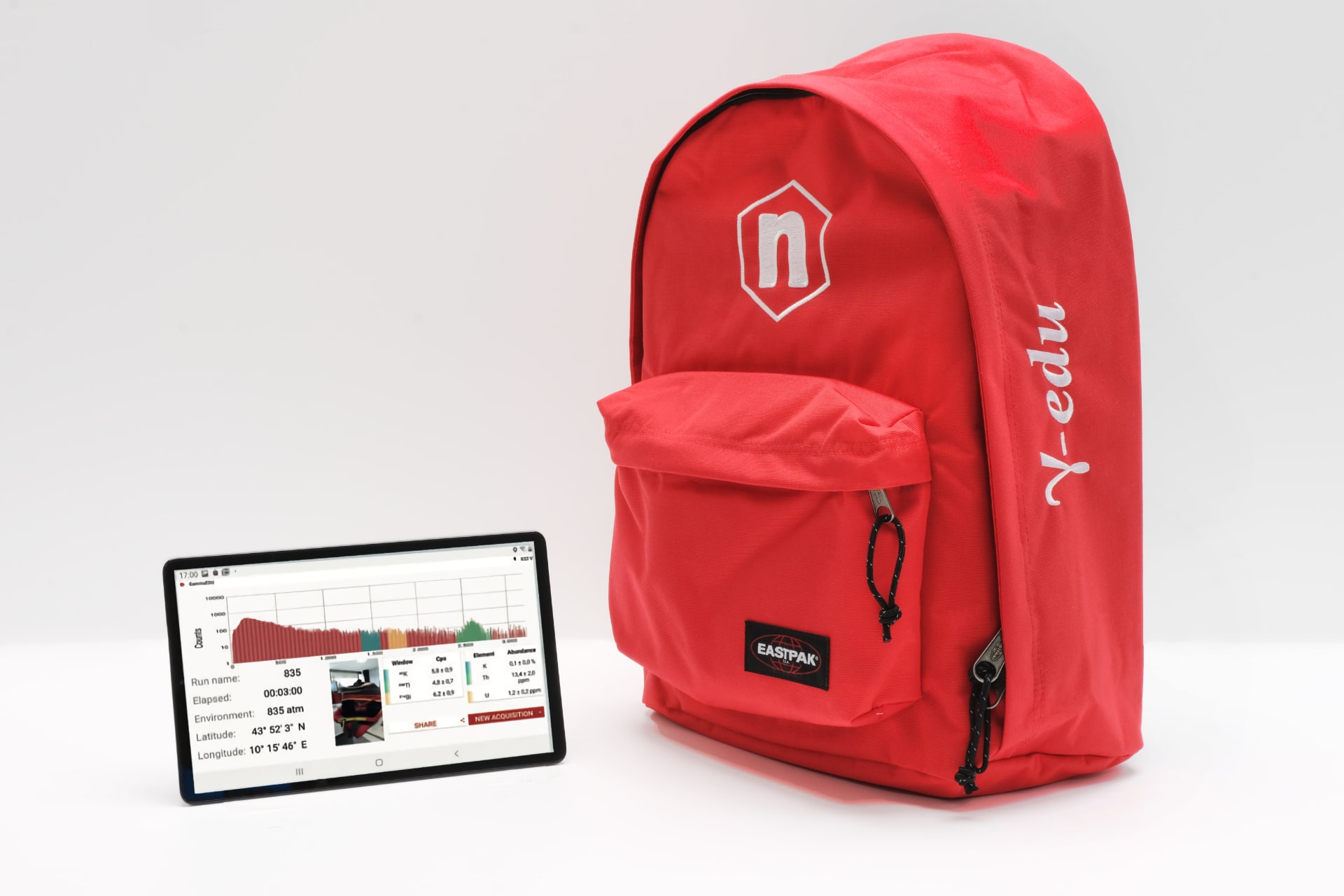| Difficult | Execution Time | Data Analysis | Radioactive Sources |
|---|---|---|---|
| Yes | Yes |
Hardware setup
This experiment guide is referred to the SP5640 educational kit. If you don’t have this kit, choose your own from the following list to visualize the related experiment guide: SG6116A – Educational Kit.
Equipment: SP5640 – Backpack Radiation Detector
| Model | SP5640 | Additional Tool | Additional Tool |
|---|---|---|---|
| Description | Gamma Stream | Gamma Radioactive Source |
Additional Aluminium Absorbers |
Purpose of the experiment
The main goal of the experiment is the measurement of the γ radiation attenuation coefficient for different materials and different energies.
Fundamentals
The attenuation of a γ radiation flux passing through matter is described by the exponential law:
I(x) = I0 * e–μx
where I0 is the incident photon flux and I(x) measures the flux of γ rays emerging from a layer x of material without having interacted. The coefficient μ depends on the material properties (atomic number, density) and on the energy of the impinging photon. The student is guided towards the development of complementary measurement techniques based on counting and on the analysis of the spectrum, performing the experiment for different materials (including PMMA, a water equivalent solid state organic material used in medical dosimetry).
Carrying out the experiment
The experiment can be performed both by taking off the instrumentation from the backpack and using the backpack with the open zipper. To power ON γstream, press the ON/OFF button. Take care that the γstream internal battery is charged, otherwise use the external power system. Connect the Ethernet cable from γstream to the PC and configure the Ethernet network of your PC. Connect γstream to the MC2Analyzer software through Ethernet connection. Run the software and power ON the detector. Place the radioactive source close to the scintillator/under the central part of the backpack. Once the radioactive source is properly positioned, the spectrum can be recorded. The experiment can be performed in analysing the spectrum by placing different absorber thicknesses between the source and the detector and measuring the events in the photo-peak for a constant pre-defined time interval.

Results
Exemplary results are shown below, reporting the variation of the events in the photopeak for different absorber thickness, a plot verifying the exponential absorption law and the dependence of the absorption coefficient on the energy.

Gamma spectra acquired with different absorber thicknesses

Linear dependence of logarityhmic intesity of gamma ray as a function of penetration thickness

Gamma attenuation coefficient as a function of energy


